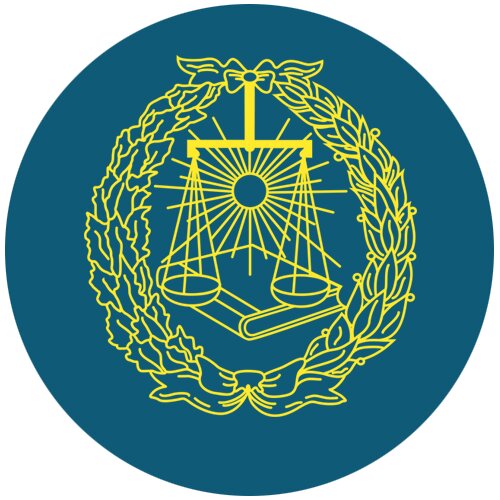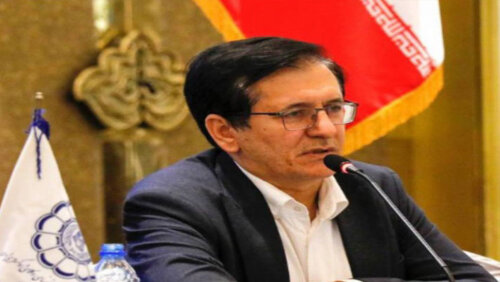Best Native People Lawyers in Iran
Share your needs with us, get contacted by law firms.
Free. Takes 2 min.
Or refine your search by selecting a city:
List of the best lawyers in Iran
About Native People Law in Iran
Native People in Iran refer to various indigenous tribes and communities that have inhabited the region for centuries. These communities have unique cultures, languages, and traditions that are protected by law.
Why You May Need a Lawyer
You may need a lawyer for issues related to land rights, cultural heritage preservation, discrimination, or legal disputes with government authorities. A lawyer can provide guidance and representation to protect your legal rights.
Local Laws Overview
Local laws in Iran recognize the rights of Native People to their ancestral lands and cultural practices. These rights are protected under various national and international laws, including the Iranian Constitution and international human rights treaties.
Frequently Asked Questions
1. Are Native People in Iran recognized as indigenous communities?
Yes, Native People in Iran are recognized as indigenous communities with special rights to their ancestral lands and cultural heritage.
2. Can Native People in Iran practice their traditional customs and rituals freely?
Yes, Native People in Iran have the right to practice their traditional customs and rituals without any interference from the government or other authorities.
3. Are there specific laws that protect the rights of Native People in Iran?
Yes, there are specific laws in Iran that protect the rights of Native People, including laws on land rights, cultural heritage preservation, and non-discrimination.
4. Can Native People in Iran seek legal assistance if their rights are violated?
Yes, Native People in Iran can seek legal assistance from lawyers and human rights organizations if their rights are violated.
5. Do Native People in Iran have the right to education in their own language?
Yes, Native People in Iran have the right to education in their own language under the Iranian Constitution.
6. Are there government organizations in Iran that specifically address the needs of Native People?
Yes, there are government organizations in Iran that specifically address the needs of Native People, such as the Cultural Heritage, Handicrafts, and Tourism Organization.
7. Can non-Native People marry into Native communities in Iran?
Yes, non-Native People can marry into Native communities in Iran, but they must respect and abide by the customs and traditions of the community.
8. Are there restrictions on Native People in Iran regarding property ownership?
No, Native People in Iran have the right to own property and land in accordance with local laws and customs.
9. Is there legal protection against discrimination faced by Native People in Iran?
Yes, there are legal protections against discrimination faced by Native People in Iran, including laws that prohibit discrimination based on ethnicity or cultural background.
10. Can Native People in Iran participate in political activities and elections?
Yes, Native People in Iran can participate in political activities and elections, and they have the right to representation in government bodies.
Additional Resources
For additional resources and assistance related to Native People in Iran, you can contact the Cultural Heritage, Handicrafts, and Tourism Organization or local human rights organizations that work with indigenous communities.
Next Steps
If you need legal assistance regarding Native People in Iran, it is recommended to seek guidance from a lawyer who specializes in indigenous rights and cultural heritage preservation. You can also reach out to local human rights organizations for support and advocacy.
Lawzana helps you find the best lawyers and law firms in Iran through a curated and pre-screened list of qualified legal professionals. Our platform offers rankings and detailed profiles of attorneys and law firms, allowing you to compare based on practice areas, including Native People, experience, and client feedback.
Each profile includes a description of the firm's areas of practice, client reviews, team members and partners, year of establishment, spoken languages, office locations, contact information, social media presence, and any published articles or resources. Most firms on our platform speak English and are experienced in both local and international legal matters.
Get a quote from top-rated law firms in Iran — quickly, securely, and without unnecessary hassle.
Disclaimer:
The information provided on this page is for general informational purposes only and does not constitute legal advice. While we strive to ensure the accuracy and relevance of the content, legal information may change over time, and interpretations of the law can vary. You should always consult with a qualified legal professional for advice specific to your situation.
We disclaim all liability for actions taken or not taken based on the content of this page. If you believe any information is incorrect or outdated, please contact us, and we will review and update it where appropriate.
Browse native people law firms by city in Iran
Refine your search by selecting a city.










